News
28 October 2024
TU Delft and Urenco invest together in nuclear talent

Uranium enricher Urenco and TU Delft are teaming up to develop new generations of nuclear scientists. Urenco is supporting the Delft Excellent Laboratory Facilities for Innovation and Nuclear Education (DELFINE) programme for three years to increase the pool of nuclear talent who can work to find solutions to the challenges society faces.
17 October 2024
TU Delft Research Reactor ready for faster research
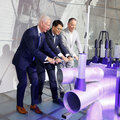
Over the past few years, a team of scientists and technicians from the TU Delft Reactor Institute have been working on a large-scale upgrade and modernisation of the Delft reactor. The result is a state-of-the-art facility where researchers and students from around the world can now conduct faster and more advanced research. The milestone was officially celebrated on Thursday 17 October 2024.
17 October 2024
TU Delft researchers provide part of the puzzle to produce alternatives for fossil fuels
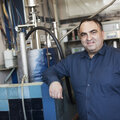
In the quest to develop synthetic oils and fuels, TU Delft has successfully produced an in-situ cell that aids in understanding the process of catalysts. This achievement is part of research conducted in collaboration with Eindhoven University and the National Institute of Clean and Low-Carbon Energy.
10 October 2024
Natalia Vtyurina winner Marina van Damme Grant 2024

On Thursday 10 October, Delft University Fund organised the 2024 Marina van Damme Grant Award Ceremony. Three female Delft alumni stood the chance to win the coveted grant of € 9,000,-. After three impressive pitches and a short jury meeting, Prof. Marina van Geenhuizen, chair of the jury, announced that it was Natalia Vtyurina for winning the 2024 Marina van Damme Award!
01 July 2024
TU Delft launches future proof research reactor with cold neutron source
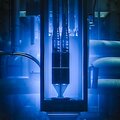
More advanced and faster research is possible with the commissioning of the cold neutron source and the improved instruments of TU Delft Reactor Institute (RID) as of 27 June 2024. The first results of research are expected in October 2024, around the official reopening of the reactor.
11 June 2024
NWO grant for new radiotherapy to reduce side effects and improve cure rates
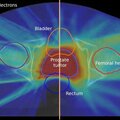
TU Delft, Erasmus MC and University of Lausanne have received a 1 million grant to develop a new treatment using electrons called VHEE: Very High Energy Electron.
27 May 2024
Charge faster and drive further
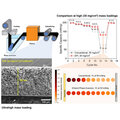
Team of TU Delft researchers has been optimizing the structure of car battery electrodes. Read the full story in the publication in Cell Reports Physical Science. “A phase inversion strategy for low-tortuosity and ultrahigh-mass-loading nickel-rich layered oxide electrodes”
08 May 2024
Disorder improves battery life

What determines the cycle life of batteries? And, more importantly, how can we extend it? An international research team led by TU Delft has discovered that local disorder in the oxide cathode material increases the number of times Li-ion batteries can be charged and discharged. Their results have been published in Nature.
25 April 2024
Grossi emphasises the need of engineers during a visit at TU Delft

At Wednesday 24th of April TU Delft hosted a meeting for Director General Rafael Grossi of the International Atomic Energy Agency (IAEA), students and others interested in the nuclear sector.
22 April 2024
INSARR mission completed well
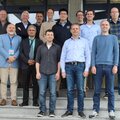
From Monday 15 to Thursday 18 April 2024, the follow-up Integrated Safety Assessment of Research Reactors (INSARR) mission was conducted at TU Delft Reactor Institute.